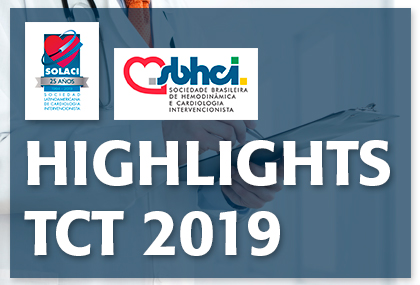Courtesy of SBHCI.
Patients with severe aortic stenosis and low surgical risk showed decreased mortality, stroke, and heart failure hospitalization at one year with transcatheter aortic valve replacement compared with surgery. Improved quality of life may seem an obvious consequence, but until now that was mere speculation.

This work, presented at the TCT 2019 Scientific Sessions and simultaneously published in JACC, analyzes precisely that: short- and long-term quality of life of patients who underwent transcatheter aortic valve replacement vs. surgery.
This analysis included 1000 low-risk patients with severe aortic stenosis who were randomized to balloon-expandable valve vs. surgery between 2016 and 2017.
Quality of life was measured at baseline, 1, 6, and 12 months by means of the Kansas City Cardiomyopathy Questionnaire (KCCQ), SF-36, and EQ-5D.
At one month from the procedure, results showed that patients who underwent transcatheter aortic valve replacement had much better scores than patients who underwent surgery (p < 0.0001).
At 6 and 12 months, such difference remained in favor of the balloon-expandable valve, but the curves were closer, narrowing the gap (p < 0.04).
The ratio of patients with excellent results was higher with TAVR, both at 6 months (90.3% vs. 85.3%; p = 0.03) and at 12 months (87.3% vs. 82.8%; p = 0.07).
Conclusion
Patients with severe aortic stenosis and low surgical risk who undergo transcatheter aortic valve replacement with a balloon-expandable valve have better quality of life scores, both in the short and in the long term, compared with surgery.
Courtesy of SBHCI.
Link to the SBHCI publication HERE
Original Title: PARTNER 3: Health Status Outcomes From a Randomized Trial of Transcatheter vs. Surgical Aortic Valve Replacement in Patients With Severe Aortic Stenosis at Low Surgical Risk.
Author of the Original Article: Suzanne J. Baron.
Get the latest scientific articles on interventional cardiologySubscribe to our weekly newsletter
We are interested in your opinion. Please, leave your comments, thoughts, questions, etc., below. They will be most welcome.





